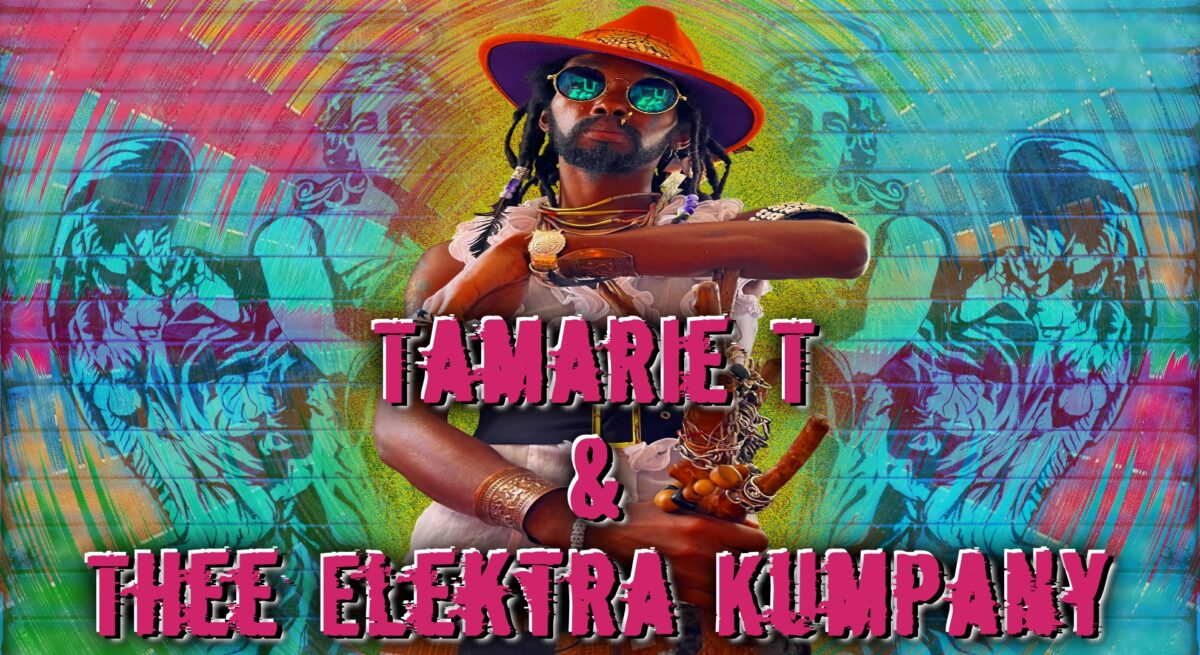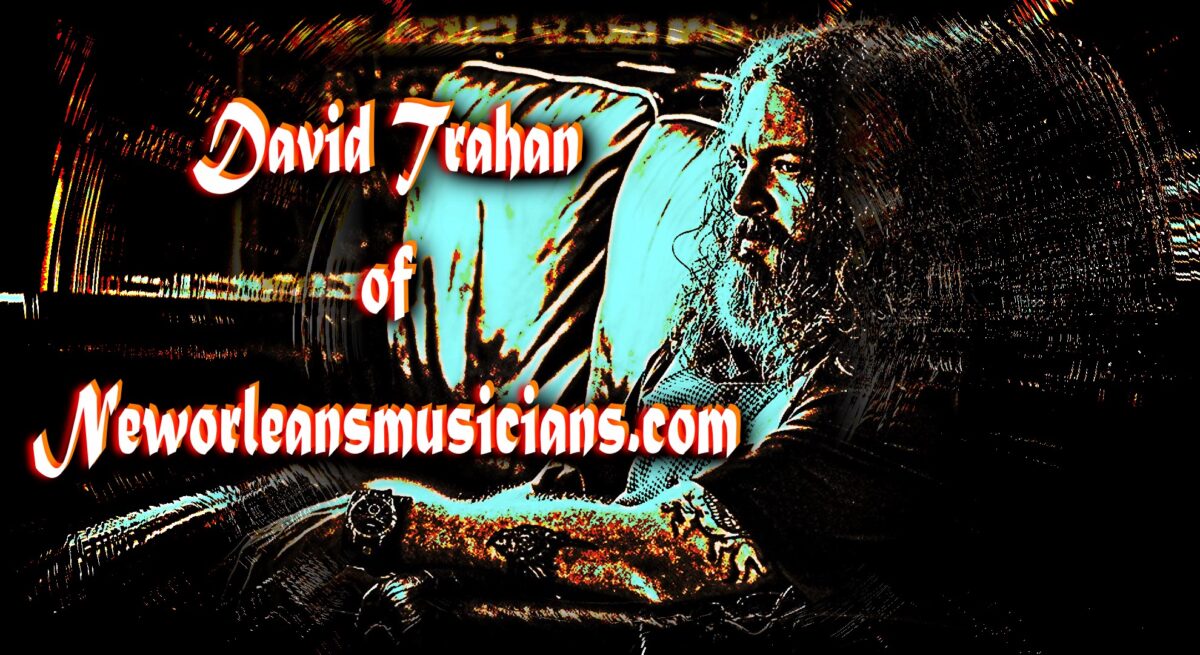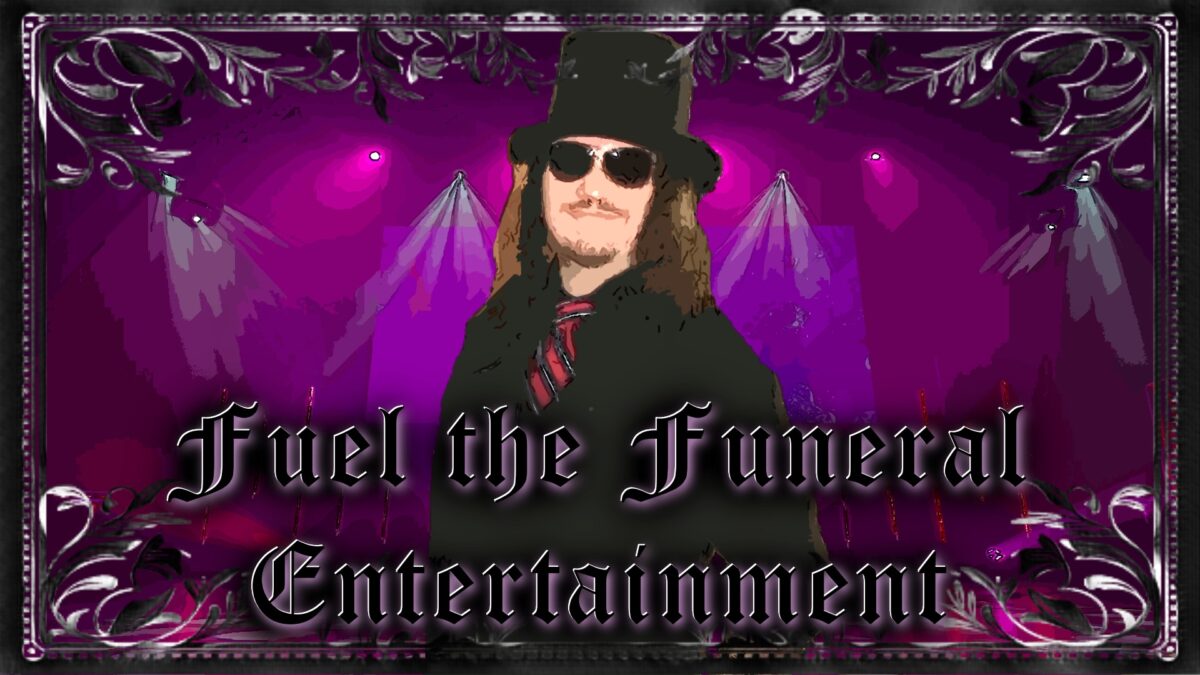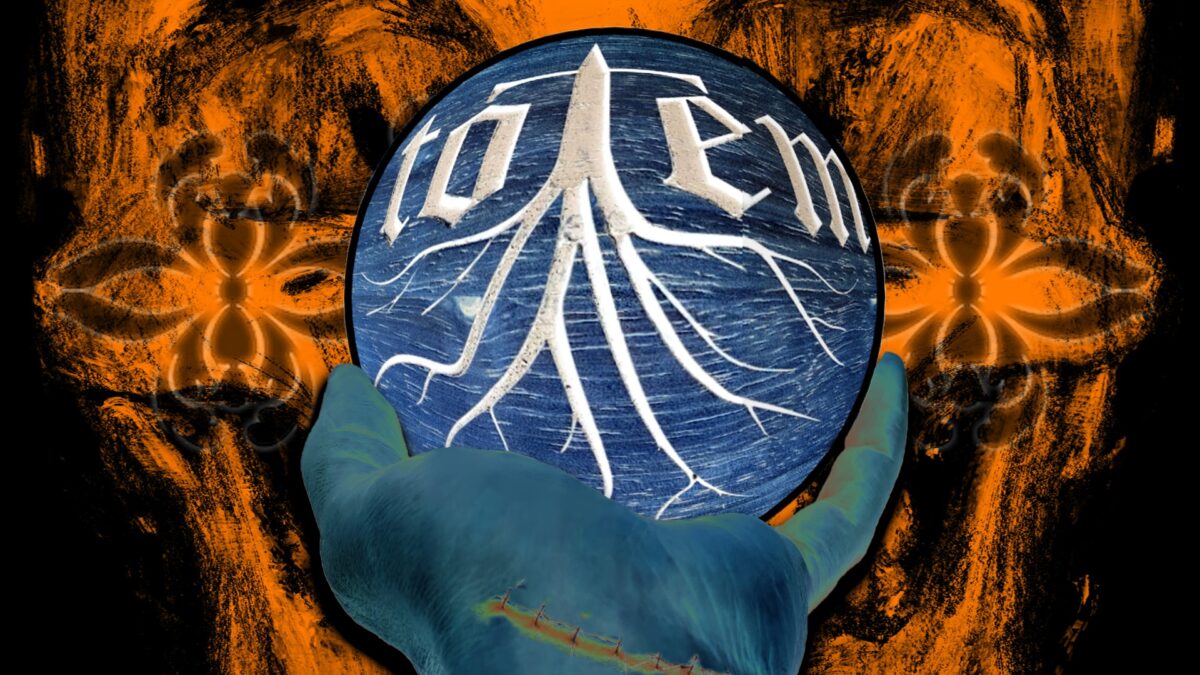First and foremost, I love the energy Tamarie brings to this interview. There are moments of bare sincerity which speak to me meaningfully as a fellow musician and bandleader and I wanted to share my thoughts. I was unable to check out the show on Frenchmen he recently hosted, but I hear it was out of sight. Please consider listening to the full interview on the Neworleansmusicians.com Podcast. Thanks for reading, and I hope you enjoy. Here is a brief bio summary of Tamarie for anyone who missed the podcast.
Tamarie T is an artist born in Inglewood, Chicago who has recently moved to New Orleans to continue his artistic career and bring his signature funk vibrations into the musical melting pot of the city. Continuing in the tradition of early funkateers, Tamarie performs with a full ensemble complete with rhythm section, horns, vocalists and even dancers. His early career, which included covering the music of powerhouse artists such as Prince, eventually led to a role as a booking manager at Chicago’s Underground Wonder Bar. During these early years, he was able to establish a network of musicians (both peers and mentors), as well as begin to develop what would become a signature musical styling and dynamic stage presence. Tamarie calls his music “Exotic Funk”. Let’s dig in.
What is exotic funk? On an immediately relatable level to many musicians, exotic funk is the opposite of “everything”. Tamarie details a discussion wherein he was cautioned against saying the band plays everything. Personally, I have received similar advice from many of my mentors over the years. I have been a bandleader for over fifteen years, and I have changed styles and tastes in various ways. As the years go by, material from previous phases begins to accumulate and decisions must be made about the direction of the group musically and from a marketing perspective. Many artists find themselves in between established “genres” and must choose the lesser of two evils when deciding how to file paperwork on streaming platforms, etc. I tip my hat to Tamarie for putting boots to the pavement and taking on long-form interviews like this in order to be clear and descriptive.
Tamarie paved his own way toward expression. He describes his career ascent from self-promoting on Craigslist as a “frontman extraoridinaire” to developing his musical and industry chops by reaffirming his constant desire to find his own sound. Tamarie speaks about “assuming the roles of our elders” as he describes the foundation and reformations of his ensemble. Again, I would encourage anyone reading this to give a listen to the full interview, especially if you yourself are at a transitional point in your career where you are looking to expand beyond covering other people’s tunes. I personally continue to perform occasionally with cover groups, but when I perform solo or with my band, I choose to do exclusively original music. This is a transition I was only personally willing to commit to after the pandemic, but this portion of the interview was especially compelling for me as a listener.
Venturing into a personal aside, I also found it relatable when Tamarie spoke about various elements of sacrifice that are sometimes required to be a musician. And doubly so if you choose to forge your own path. As with most things in life, the factors at play will not be identical between any two people on this planet when it comes to major decision making. This topic, that is- the sacrifices musicians make to purse the lifestyle which suits them, could be the subject of a novel on its own. For the time being I intend to leave the subject alone, but perhaps will write a separate opinion piece to take a closer look at the matter in general.
For now, let’s talk about New Orleans. It is a visceral city in which to be a musician and there is enough excitement generated per day to power a small-town power grid. For many, the first performances in the city are absolutely electrifying and can generate enough mental momentum to make you feel like you can conquer the world. This certainly seems to be the case with Tamarie, and I hope to see his career continue to grow during his time in the city. There are likely enough articles out about the potential roadblocks and the pitfalls which lay about, so let’s instead take a tangent.
Tamarie mentions the lack of response by various venues to his email requests to schedule a performance date, which is something I believe most musicians can empathize with in one way or another. There are, of course, some band leaders (the names change, the game doesn’t) who will prey on new-to-town musicians and there are always suspicions that venues may not be paying what is owed. But beyond the surface-level (and unsolicited) cautionary tales any local musician could share, and to avoid potential slander, I would like to use this article to encourage Tamarie and others to continue pushing for opportunities to perform (for money) their original music.
He describes his first performance in the city with local musician Sierra Green. I have personally had the pleasure of working with Sierra Green numerous times and I am vicariously thrilled for Tamarie to be introduced to such a business-minded (and bullshit-avoidant), charismatic and knowledgeable veteran of the scene. Anyone who has heard Sierra knows she possesses an incredible voice and a powerful stage presence. Certainly, a potentially exciting pairing for as vibrant of an artist as Tamarie. He also mentions trombonist and band member Maurice Cade, another New Orleans transplant born in Chicago. Maurice, in addition to performing with Tamarie and Sierra, is the trombonist in my horn section, The KB Horns. Maurice’s playing was recently featured at the Blues Music Awards in Memphis where The KB Horns accompanied blues guitarist Kenny Neal. All that to say, I believe Tamarie has found himself in exemplary company when it comes to fabulous musicians with earnest intention.
Returning to the interview, Tamarie makes an aside about “assuming the roles of our mentors” which I found quite compelling. As the years pass, we do inevitably find ourselves in a position wherein we must take the mantle from whoever paved the way for us. Although we may never get an opportunity to inherit a legacy show or even meet our musical icons, I believe Tamarie is right in pointing out that we must appreciate the mentors who shaped our early years and we must express that gratitude to them in whatever way we can. Tamarie talks about the eventual reformations of his ensemble which led to staffing decisions that excluded long-time band members. He spends some time on this point, elaborating on the delicacy of the situation and the process by which bands transition to new membership while still showing respect for the members who are not chosen to represent the current trajectory. Having been a bandleader for over a decade, I relate to this deeply because sometimes the decisions can be absolutely gut-wrenching. It takes a certain type of person to balance the role of a business manager and that of the artist. Music is very often emotionally involved work, and I appreciate that Tamarie took the time in the interview to speak on the necessity of being considerate to those who must be let go in a transition. Life is hard enough; we must be nice to each other.
Coming to a final quote, Tamarie speaks about an interaction with Sierra Green where he was told to “not be humble”. Now we are playing with fire, and I love it! There is always a necessity for respect and decorum, relative of course to the situation, but there is a sound truth in the sentiment that the meek will not inherit the stage in New Orleans. I think there is a sound logic within this idea, and I want to point out again that this interview in its entirety goes into great detail about this point (I don’t want to see anyone taking this out of context). I personally relate to and agree with the sentiment, and I believe it goes without saying that in the context of all other topics discussed in the interview Tamarie shows a consistent empathy and compassion for his core band as well as temporary hires. Disclaimers aside, holy shit what a good thing this is to hear early on in your New Orleans journey.
This is a fiercely competitive gig market, with a lot of room for sidemen and fill-ins. But there are only so many stages and so many tourists to entertain on a given day. Until the point in your career where you are selling tickets with your name on them to pay your bills, being a bandleader in a tip-driven economy is no small undertaking. Recruiting band members who will make themselves available to you to take a chance on original music in a cover-dominated environment can be tricky, and Tamarie points out that even once you clear that hurdle the musicians will likely be involved in several other projects simultaneously. Scheduling rehearsal can be a nightmare, and commitments can often be quickly severed when the prospect of higher-paying work is introduced. It is not an easy task, and can be complicated even still by the lack of response by bigger name venues. Speaking from experience, it can be exhausting.
I encourage Tamarie, and anyone else looking to present their original music, to pursue this goal to the fullest extent possible. Tamarie, you are in good company (Kumpany?) and I wish you nothing but success. Don’t let the bullshit wear you down, and do what you can to stay true to your vision. I don’t believe there is any dishonor in taking pickup cover work if it helps keep things moving, and there are lots of places beyond tourist-populated clubs to perform. Big crowds are nice, but it’s hard to retain people’s attention and even harder to make fans who seek you out independently. I wish you success, and I am looking forward to meeting you out on the scene!
I’ll say this, nobody is going to see you as anything but yourself in New Orleans as long as you put it out there. Shine on!
Author: Kasey Ball
About the author:
Kasey Ball is a Louisiana born composer/arranger, multi-instrumentalist and producer. He is a 15-year veteran of the Louisiana music scene and bandleader of KB & the Backbeat.






















